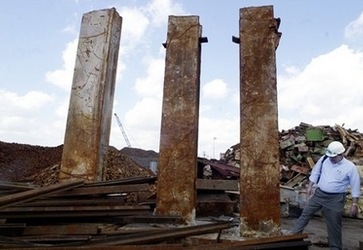US engineer society accused of cover-ups
(Agencies)
Updated: 2008-03-26 14:35
Updated: 2008-03-26 14:35
NEW ORLEANS -- The professional organization for engineers who build the nation's roads, dams and bridges has been accused by fellow engineers of covering up catastrophic design flaws while investigating national disasters.
After the 2001 attack on the World Trade Center and the levee failures caused by Hurricane Katrina in 2005, the federal government paid the American Society of Civil Engineers to investigate what went wrong.
|
|
Critics now accuse the group of covering up engineering mistakes, downplaying the need to alter building standards, and using the investigations to protect engineers and government agencies from lawsuits.
Similar accusations arose after both disasters, but the most recent allegations have pressured the organization to convene an independent panel to investigate.
"They want to make sure that they do things the right way and that they learn lessons from the studies they do," said Sherwood Boelhert, a retired Republican congressman from New York who heads the panel. He led the House Science Committee for six years.
The panel is expected to issue a report by the end of April and may recommend that the society stop taking money from government agencies for disaster investigations.
The engineering group says it takes the allegations seriously, but it has declined to comment until completion of the panel's report and an internal ethics review.
In the World Trade Center case, critics contend the engineering society wrongly concluded skyscrapers cannot withstand getting hit by airplanes. In the hurricane investigation, it was accused of suggesting that the power of the storm was as big a problem as the poorly designed levees.
The group has about 140,000 members and is based in Reston, Va. It sets engineering standards and codes and publishes technical books and a glossy magazine. Members testify regularly before Congress and issue an annual report on the state of the nation's public-works projects.
The society got a $1.1 million grant from the Army Corps of Engineers to study the levee failures. Similarly, the Federal Emergency Management Agency paid the group about $257,000 to investigate the World Trade Center collapse.
The engineers were not involved in investigating last year's bridge collapse in Minneapolis.
The society issued a report last year that blamed the levee failures on poor design and the Corps' use of incorrect engineering data.
Raymond Seed, a levee expert at the University of California, Berkeley, was among the first to question the society's involvement. He was on a team funded by the National Science Foundation to study the New Orleans flood.
|
|
|
||
|
||
|
|
|
|


